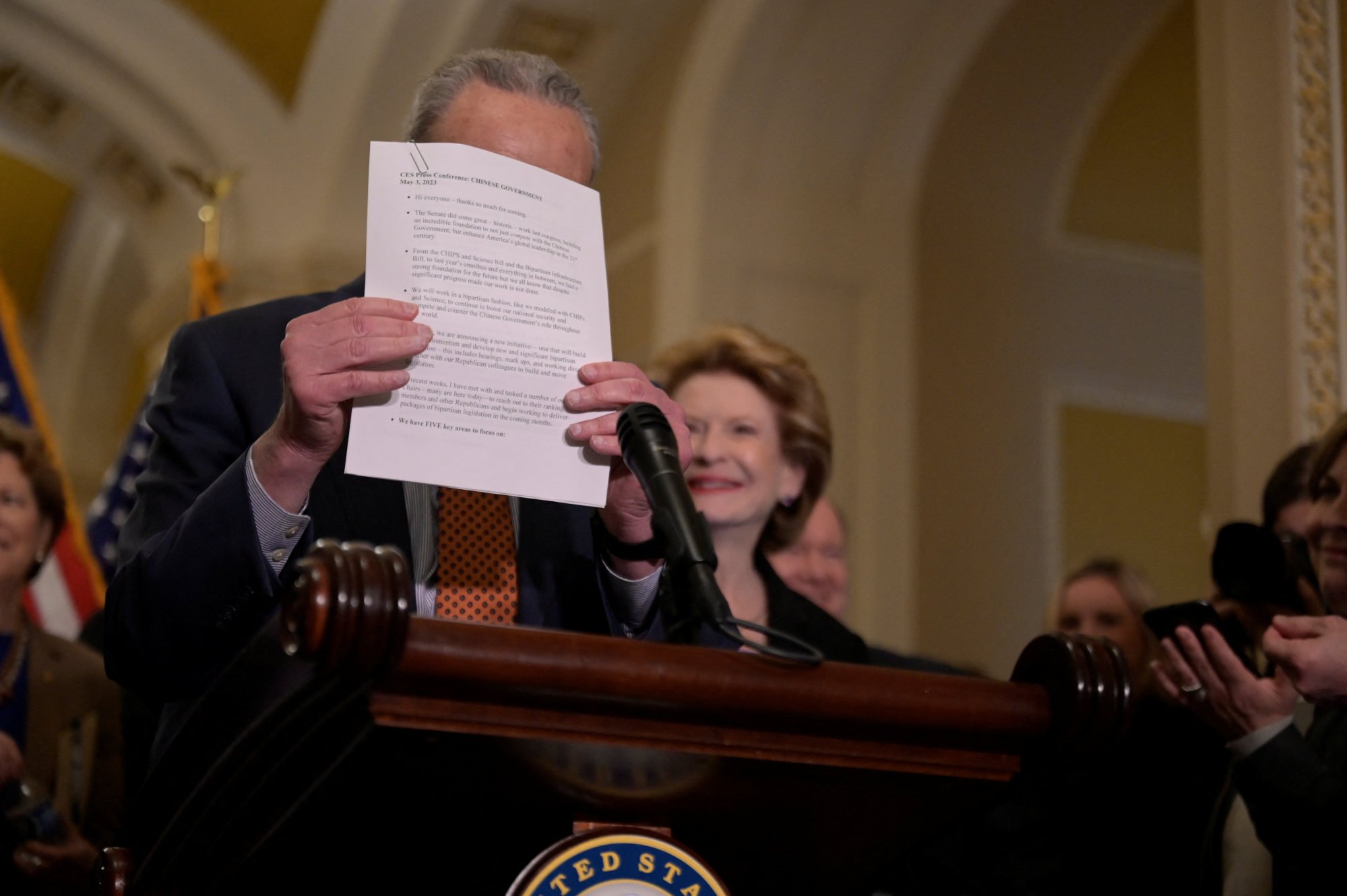
US Senate Democrats to propose comprehensive China competition bill
- The measure will focus on limiting hi-tech transfers and the flow of investments to China, among other military, diplomatic and economic goals
- Majority Leader Chuck Schumer says he anticipates it being a bipartisan legislative effort that will be introduced ‘within the next several months’
US Senate Majority Leader Chuck Schumer, along with the Democratic leaders of several Senate committees, on Wednesday announced plans for a legislative package he described as “one large Chinese government competition bill”.
It will feature five areas, he said: limiting advanced technology transfer to the Chinese government; restricting investment flows to Beijing; strengthening domestic industries; improving coordination with security partners and allies; and strengthening alignment between economic and trading partners.
Schumer, who represents New York, said that he hoped to get the bill together “within the next several months” and that he wanted it to be bipartisan, noting that there was already “great interest” from Republicans.
He said he has asked fellow Democratic senators “to reach out to their ranking members and other Republicans and begin working to deliver packages of bipartisan legislation, which we will combine into one large Chinese government competition bill”.

Republican support is necessary for the effort to progress, as the party holds the majority in the House of Representatives.
“It’s incumbent on us to ensure that the US is not the financial lifeblood supporting the Chinese government and its military technological advancement,” he said.
US ambassador says next steps to improve relations are up to China
Schumer previewed some steps, including giving the Treasury and Commerce secretaries new authority to investigate and halt the flow of capital to China’s hi-tech industries, and strengthening the screening process for inbound investments, a duty of the Committee on Foreign Investment in the United States (CFIUS).
Senate committee chairs representing agriculture, armed services, foreign relations, environment, small business and others highlighted their legislative goals.
These include plans to add the Department of Agriculture and Food and Drug Administration as permanent members of CFIUS; increasing funding for US diplomatic engagement; creating clean energy manufacturing jobs “by the hundreds of thousands”; giving more resources to the federal Development Finance Corporation; and enhancing efforts to correct Beijing’s false narratives through the State Department’s Global Engagement Centre.
The new package will join some 250 pieces of China-related legislation that have been introduced since the beginning of the new Congress in January.
“Time is not on our side,” said Schumer, who then referred to Chinese leader Xi Jinping.
“The Xi regime is working every day to catch up and surpass the United States.”

